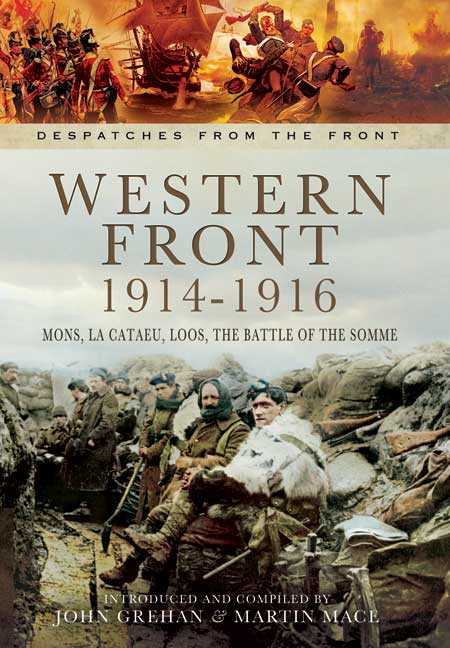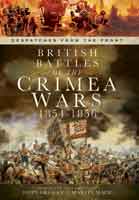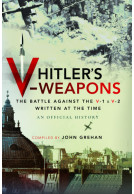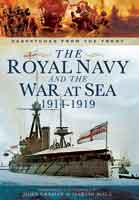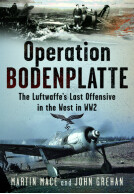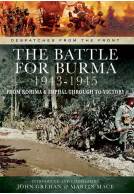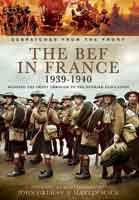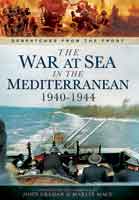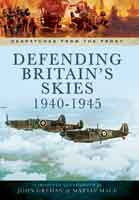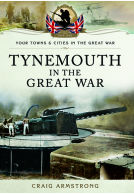Western Front 1914-1916 (Hardback)
Mons, La Cataeu, Loos, the Battle of the Somme
Imprint: Pen & Sword Military
Series: Despatches from the Front
Pages: 196
ISBN: 9781781593219
Published: 16th July 2013
(click here for international delivery rates)
Order within the next 4 hours, 56 minutes to get your order processed the next working day!
Need a currency converter? Check XE.com for live rates
| Other formats available - Buy the Hardback and get the eBook for free! | Price |
|---|---|
| Western Front 1914-1916 ePub (7.4 MB) Add to Basket | £6.99 |
From the moment the German army moved quietly into Luxemburg on 2 August 1914, to the Armistice on 11 November 1918, the fighting on the Western Front in France and Flanders never stopped. There were quiet periods, just as there were the most intense, savage, huge-scale battles.
The war on the Western Front can be thought of as being in three phases: first, a war of movement as Germany attacked France and the Allies sought to halt it; second, the lengthy and terribly costly siege warfare as the entrenched lines proved impossible to crack (late 1914 to mid-1918); and finally a return to mobile warfare as the Allies applied lessons and technologies forged in the previous years.
As with previous wars, British Commanders-in-Chief of a theatre of war or campaign were obliged to report their activities and achievements to the War Office in the form of a despatch and those written from the Western Front provide a fascinating, detailed and compelling overview of this part of the First World War.
As mentioned in
Shetland Life Magazine
This perspective is very different to many accounts of the war and rarely have such views ever been published. The reports are factual summaries of the activities and accomplishments of British Forces. Sometimes there are comments on the activities of the French Forces and how they interacted with the British as they fought on the flanks of the British.
Military Archive Research
This volume comprises of the despatches produced by Generals French and Haig in the first two years of the war. They are presented in the same format without corrections for grammar or spelling and each despatch gives a review of a different battle. It is ideal for those wishing to study the war from a senior perspective and it is an eye opener on the conduct of the gallant men of the British Army. This volume is unique in this and it achieves its primary objective.
If you have any interest in WW I history you will want to add this one to the collection ,As the book is made up off official Despatches it makes for some very indepth and interesting reading without being ‘heavy going’ And as this is part of a series of books I shall certainly be looking out for some of the other titles. Highly recommended reading .
inscale.org
Over many periods of British military history commanders in the field have written up immediate accounts of their operations and sent them home to the War Office and politicians back home; these were the so-called ‘despatches’ and where the phrase ‘mentioned in despatches‘ comes from.
Sommecourt.wordpress.com
This continued at the time of the Great War and British commanders like Sir John French and then Douglas Haig both compiled despatches from the front. These were often published in the London Gazette but this new volume brings together the main despatches from the period 1914 to 1916 and puts them in one complete volume. In doing so it covers key battles from Mons to First Ypres in 1914, the British offensives of 1915 through to the Battle of the Somme.
This is a very useful book and while the despatches were written with one eye on wartime censorship, they give a good, contemporary account of some of the key battles of the First World War.
A book very good for family historians wanting a readable and accessible overview of the first two years of the war.
If you have any interest in WW I history you will want to add this one to the collection ,As the book is made up off official Despatches it makes for some very indepth and interesting reading without being ‘heavy going’ And as this is part of a series of books I shall certainly be looking out for some of the other titles.
inscale.org
Highly recommended reading .
Over many periods of British military history commanders in the field have written up immediate accounts of their operations and sent them home to the War Office and politicians back home; these were the so-called ‘despatches’ and where the phrase ‘mentioned in despatches‘ comes from.
sommecourt.wordpress.com
This continued at the time of the Great War and British commanders like Sir John French and then Douglas Haig both compiled despatches from the front. These were often published in the London Gazette but this new volume brings together the main despatches from the period 1914 to 1916 and puts them in one complete volume. In doing so it covers key battles from Mons to First Ypres in 1914, the British offensives of 1915 through to the Battle of the Somme.
This is a very useful book and while the despatches were written with one eye on wartime censorship, they give a good, contemporary account of some of the key battles of the First World War.
A book very good for family historians wanting a readable and accessible overview of the first two years of the war.
About John Grehan
JOHN GREHAN has written, edited or contributed to more than 300 books and magazine articles covering a wide span of military history from the Iron Age to the recent conflict in Afghanistan. John has also appeared on local and national radio and television to advise on military history topics. He was employed as the Assistant Editor of Britain at War Magazine from its inception until 2014. John now devotes his time to writing and editing books.
About Martin Mace
Martin Mace has been involved in writing and publishing military history for more than twenty years. He began his career with local history, writing a book on the Second World War anti-invasion defences in West Sussex. Following the success of this book, he established Historic Military Press, which has published a wide range of titles. Having launched Britain at War Magazine, he has been its editor since the first issue in May 2007.







